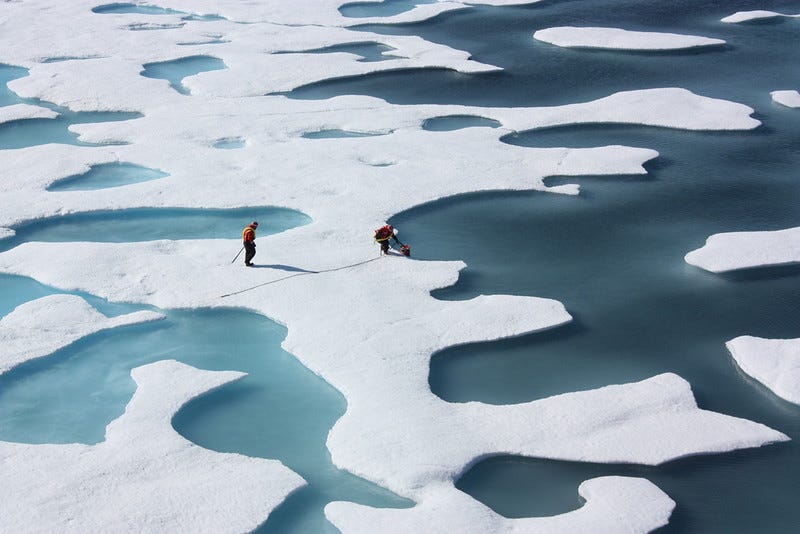News briefs: Summer without Arctic ice
Plus, ending public finance for fossil gas, and using whiskey waste for biofuel

A summer without ice?
In the past four decades, multiyear ice — the thicker and more resilient layer of ice over the Arctic Ocean that endures through the summer — has shrunk by about half. At some time in the next few decades, scientists expect the world will see an ice-free Arctic Ocean throughout the summer, with worrying consequences for the rest of the climate system, according to a report in EarthSky.org. That prospect got much closer in 2020, due in part to the exceptional summer heatwave that roiled the Russian Arctic. Jonathan Bamber, of the University of Bristol, writes that “arctic sea ice plays a crucial role in the Earth’s energy balance. It is covered for most of the year by snow, which is the brightest natural surface on the planet, reflecting about 80% of the solar radiation that hits it back out to space.”
WEF: Business of sustainability comes of age
In 2019, impact investing was a $715 billion global market. Looking beyond the pure financial heft of the market, the number accurately reflects the growing reality among corporates and investors who are seeking to deliver strong financial returns for their shareholders while building a more equitable world for their stakeholders, Ahmed Galal Ismail, the CEO of Majid Al Futtaim Properties, writes for the World Economic Forum as part of the WEF’s Green Horizon Summit on the Pivotal Role of Finance. “With a sharper corporate focus on achieving Environmental, Social and Governance (ESG) impact, the appetite for investments that address some of the world’s most pressing challenges has grown steadily in recent years. In seeking to address these challenges, business has an historic opportunity. It cannot abdicate its responsibility in working for a more just and progressive society for one fundamental reason: such an environment is a prerequisite for a sustainable, resilient and market-oriented private sector.”
Exploring the case for ending public finance for fossil gas
The expansion of gas demand in the long term is not compatible with a 1.5°C. pathway, the E3G group writes in its analysis of the intersection between gas, climate, and development, titled Exploring the Case for Ending Public Finance for Fossil Gas. In the report, the group says “many parts of the supply chain are also exposed to significant financial risk or come with development or social disbenefits. And in most cases, alternatives exist or are emerging. This means that for many parts of the gas value chain it is increasingly hard to make a case that gas use is Paris-aligned or supports economic development – this includes upstream, most midstream, and end uses such as power generation and heating in buildings.”
Company hopes to convert whiskey waste to biofuels
An Irish scientist hopes to expand from Scotland to Ireland plans to convert 50,000 metric tons annually of whiskey industry waste into renewable fuel, according to a report published in the Irish Examiner. Martin Tangney, a professor and expert on biofuel production, is launching a crowdfunding campaign to fund the completion of Scotland’s first biorefinery. Tangney’s company, Celtic Renewables, is nearing the completion of its first production plant — and Scotland’s first biorefinery — at Caledon Green in Grangemouth, Scotland. The report says Tangney seeks to bring to Ireland the process that converts unwanted and low-value biological material into high-value low-carbon products.
